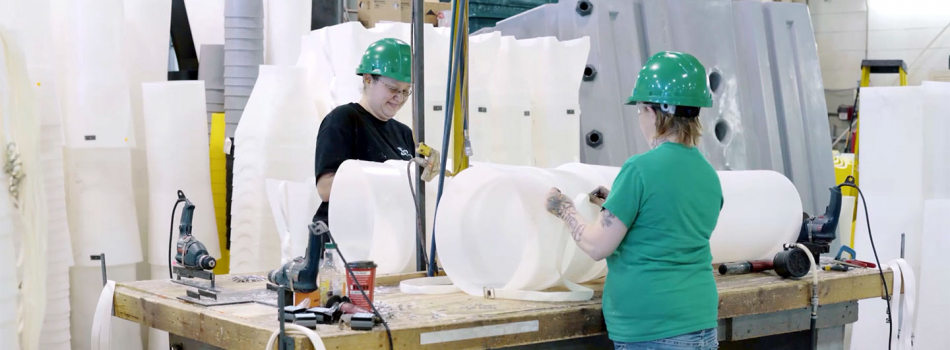Since the 1950s, plastics have become an inescapable part of modern life. And their use is steadily increasing, with 50% of all plastic ever manufactured having been made since 2000. A global movement has emerged in recent years to try and roll back the ever-growing tide of single-use plastics like water bottles and straws – but what about all the other ways plastics are used?
For rotational plastics moulding company Flexahopper, figuring out how to lighten the company’s environmental footprint has become central to its business model. Founded over 50 years ago, the Lethbridge, Alberta-based plastics manufacturer produces myriad products for the oil and gas, agricultural and marine industries, as well as packaging and aerospace components. For founder and CEO Bill Spenceley, an emphasis on sustainability has forced the company to make longer-term investments that have boosted competitiveness in an energy and resource-intensive industry.
The first step involved targeting the company’s electricity use. Starting in 2007, Flexahopper began sourcing all of its power from Bullfrog Power – ensuring more renewable electricity production on the grid. A decade later, Bill decided to take advantage of dropping solar panel prices and southern Alberta’s powerful sunlight to install 508 large solar panels on the roof of its Lethbridge facility.
With government support through Energy Efficiency Alberta, the company was able to install a 164-kilowatt solar system covering 25% of the facility’s total power needs in 2017. The company is aiming to recoup its investment in under 10 years, while still relying on Bullfrog to offset the remainder of its power usage.
This Alberta company has also systematically invested in research to improve the efficiency of the manufacturing process itself. One initiative involves capturing waste heat and using it to preheat polymers, reducing the cycle times by 20%. The company has been increasing its “cradle to grave” programs so that used products are sent back to Flexahopper at the end of their life, ensuring that more of its products are properly recycled or refurbished for reuse.
Flexahopper recently signed on as an industrial partner for the creation of a green polymer and technologies centre at the University of Lethbridge. Funded by the federal government, the $1 million investment through the Western Diversification Initiative will go towards the development of innovative biodegradable plastics and technologies. When coupled with reducing plastic use overall, these technologies are the ultimate sustainability solution for plastics.
Read up on more Ecopreneur stories here, and follow @smartprosperity to join the #CanadasEcopreneurs conversation.



